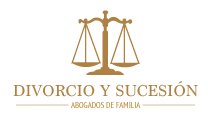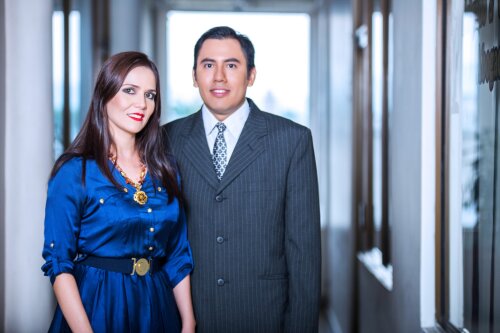Best Guardianship Lawyers in Bucaramanga
Share your needs with us, get contacted by law firms.
Free. Takes 2 min.
List of the best lawyers in Bucaramanga, Colombia
About Guardianship Law in Bucaramanga, Colombia
Guardianship, known in Colombia as “tutela” or “curaduría”, is a legal process that ensures the protection, care, and representation of individuals who are unable to manage their personal or financial affairs due to age, disability, or incapacity. In Bucaramanga, the capital of the Santander department, guardianship laws are aligned with national regulations but may also involve local governmental and judicial authorities in their application. The main goal is to safeguard the rights, property, and well-being of minors, elderly adults, and individuals with mental or physical disabilities who require someone to act on their behalf in legal, medical, and financial matters.
Why You May Need a Lawyer
Seeking legal help for guardianship issues in Bucaramanga can be essential in various circumstances. Some of the most common reasons include:
- When a family member becomes incapacitated and can no longer make decisions for themselves.
- When a minor loses parental care and needs a responsible adult to manage their well-being and assets.
- Disputes among family members regarding who should be appointed as guardian.
- Concerns about the mismanagement or abuse of an individual's assets by an existing guardian.
- Requests for judicial intervention to revoke or modify a guardianship arrangement.
- To navigate administrative procedures and meet legal requirements for guardianship appointments.
- If there is uncertainty about interpreting current guardianship laws or the responsibilities involved.
A qualified lawyer can help ensure the process is handled correctly, protect the interests of the vulnerable person, and avoid potential legal complications.
Local Laws Overview
In Colombia, guardianship is governed primarily by the Civil Code and supplementary statutes. Bucaramanga adheres to these national laws, but the process often involves local family courts, notaries, and social services.
Key aspects include:
- Appointment of Guardian: Family courts or Notarial offices may designate a guardian if required by the situation. Relatives are typically given preference, but the best interest of the individual is the main criterion.
- Types of Guardianship: There are different types of guardianship, including for minors (tutelas) and for adults with disabilities (curadurías). Each has specific procedures and requirements.
- Duties of the Guardian: Guardians must manage the personal, financial, and legal affairs of the person under guardianship, always seeking their well-being and approved by judicial authorities.
- Oversight and Reporting: Guardians are required to submit regular reports to the court or relevant authority regarding the status and management of the person's affairs.
- Rights of the Ward: The protected person retains all rights not affected by guardianship, and guardians are legally bound to act in their best interest.
- Revocation and Modification: Guardianship can be reviewed, modified, or revoked by judicial authorities if circumstances change or if misuse is detected.
Local implementation sometimes includes support from the office of the Family Ombudsman (Personería Familiar) and Instituto Colombiano de Bienestar Familiar (ICBF) when children are involved.
Frequently Asked Questions
What is guardianship in Bucaramanga, Colombia?
Guardianship is a legal measure that allows a designated individual or entity to protect and administer the affairs of a person who is unable to do so themselves due to age, disability, or incapacity.
Who can be appointed as a guardian?
Usually, close relatives such as parents, siblings, or grandparents are preferred. If there are no suitable relatives, courts can appoint trusted third parties or public entities.
What is the process to obtain guardianship?
The process typically involves submitting a petition to the local Family Court or a Notary, providing evidence of incapacity, and demonstrating the necessity for guardianship. The court will review all documents, may conduct interviews, and then issue a decision.
Does the person under guardianship lose all their rights?
No. The person retains all rights except those specified by the court as requiring representation, usually relating to their finances or critical personal decisions.
How long does guardianship last?
It lasts as long as the incapacity persists or until the protected person reaches legal adulthood in the case of minors. Guardianship can be reviewed and terminated by court order if circumstances change.
What responsibilities does a guardian have?
A guardian must always act in the best interest of the protected person, including making decisions about their health, education, and finances, and must provide regular reports to the authorities.
Can guardianship be challenged or revoked?
Yes. Family members or authorities can request a review if there is evidence of misuse, abuse, or if the ward recovers their capacity. Courts will evaluate and can modify or revoke guardianship accordingly.
What are the costs involved?
Costs may include legal fees, court fees, notary charges, and, if necessary, medical evaluations. Some public legal services may offer free assistance for vulnerable populations.
Is it necessary to have a lawyer?
While not strictly required, it is highly recommended to have legal representation to navigate procedural complexities and protect everyone's interests.
What happens if there is disagreement among family members over guardianship?
The court evaluates the case and makes a decision based on the best interests of the person needing protection, considering all evidence and testimonies.
Additional Resources
For individuals seeking guidance or support with guardianship matters in Bucaramanga, the following organizations and offices may be helpful:
- Instituto Colombiano de Bienestar Familiar (ICBF): Provides assistance and protection for minors and vulnerable populations.
- Family Courts of Bucaramanga: Handle judicial declarations of guardianship and related processes.
- Personería Municipal: The local ombudsman's office offers guidance, legal orientation, and protection of rights.
- Defensoría del Pueblo: National human rights ombudsman with services for vulnerable individuals.
- Local Legal Aid Clinics: Some universities and NGOs offer pro bono legal assistance for those unable to afford private representation.
Next Steps
If you believe you or a loved one needs a guardianship arrangement in Bucaramanga, consider the following actions:
- Identify the specific needs and incapacity of the individual who may require guardianship.
- Gather relevant documentation, such as medical records and identification papers.
- Consult directly with a local attorney specializing in family or guardianship law.
- Contact the Family Court or Notarial office to initiate proceedings, or approach the ICBF if the case involves a minor.
- Attend all hearings or meetings as requested by authorities and submit any necessary paperwork promptly.
- Continue to act in the best interest of the person in need and maintain transparent communication with all parties involved.
Professional legal advice is critical to ensure the protection of vulnerable individuals and the proper legal management of guardianship in Bucaramanga. Always seek qualified support before proceeding.
Lawzana helps you find the best lawyers and law firms in Bucaramanga through a curated and pre-screened list of qualified legal professionals. Our platform offers rankings and detailed profiles of attorneys and law firms, allowing you to compare based on practice areas, including Guardianship, experience, and client feedback.
Each profile includes a description of the firm's areas of practice, client reviews, team members and partners, year of establishment, spoken languages, office locations, contact information, social media presence, and any published articles or resources. Most firms on our platform speak English and are experienced in both local and international legal matters.
Get a quote from top-rated law firms in Bucaramanga, Colombia — quickly, securely, and without unnecessary hassle.
Disclaimer:
The information provided on this page is for general informational purposes only and does not constitute legal advice. While we strive to ensure the accuracy and relevance of the content, legal information may change over time, and interpretations of the law can vary. You should always consult with a qualified legal professional for advice specific to your situation.
We disclaim all liability for actions taken or not taken based on the content of this page. If you believe any information is incorrect or outdated, please contact us, and we will review and update it where appropriate.









